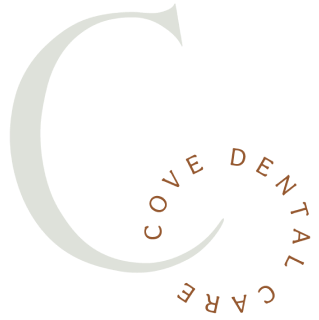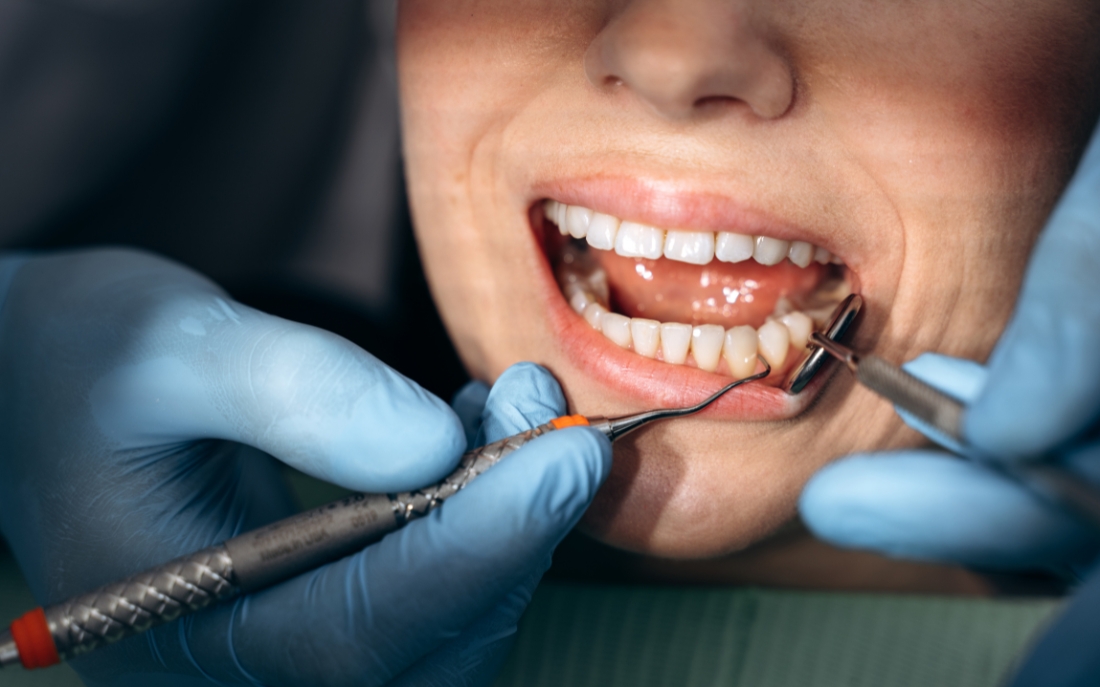What are receding gums, and why do they happen?


Have you ever noticed your teeth looking longer or experienced increased sensitivity? These could be signs of receding gums, a common yet often overlooked dental issue that can significantly impact your oral health. Its occur when the gum tissue surrounding your teeth starts to pull back, exposing more of the tooth or its root. This condition creates pockets where harmful bacteria can accumulate, leading to serious dental problems if left untreated. Understanding why it happen and how to prevent them is crucial for maintaining a healthy smile. Dive into this blog to learn about the causes, symptoms, and treatments for receding gums, and discover practical steps to protect your oral health.
Causes of Receding Gums
Several factors contribute to the development of receding gums. Understanding these causes can help in preventing and managing the condition effectively.
Poor Oral Hygiene
Inadequate brushing and flossing can lead to plaque buildup, a sticky film of bacteria that hardens into tartar. Tartar can only be removed by a dental professional and can cause the gums to recede if not treated.
Periodontal Diseases
Gum diseases, such as gingivitis and periodontitis, are significant causes of receding gums. These infections destroy gum tissue and the supporting bone that holds teeth in place. As the diseases progress, the gums pull away from the teeth.
Aggressive Brushing
Brushing too hard or using a toothbrush with hard bristles can wear down the enamel on teeth and push the gums back. Gentle brushing with a soft-bristled toothbrush is recommended to protect both the teeth and gums.
Genetics
Some individuals are more prone to gum disease and receding gums due to their genetic makeup. If a family history of gum disease exists, extra care should be taken to maintain good oral hygiene.
Hormonal Changes
Fluctuations in hormone levels, particularly in women, can make gums more sensitive and vulnerable to recession. Puberty, pregnancy, and menopause are times when women should be especially diligent about their oral health.
Tobacco Uses
Tobacco products, including cigarettes and smokeless tobacco, contribute to the development of sticky plaque on teeth, which can lead to gum recession. This use is also linked to a higher risk of periodontal diseases.
Teeth Grinding and Clenching
Bruxism, or teeth grinding and clenching, exerts excessive force on the teeth, leading to gum recession. This condition often occurs during sleep and can be managed with a mouthguard or other dental devices.
Misaligned Teeth or Bite
When teeth do not come together evenly, it can create too much force on the gums and bone, leading to gum recession. Orthodontic treatment may be necessary to correct the alignment and reduce the risk of receding gums.
Symptoms of Receding Gums
Recognizing the signs of receding gums early can prevent more severe dental issues. Here are some symptoms to watch for:
Tooth Sensitivity
One of the earliest signs of receding gums is increased tooth sensitivity. As the gums pull back and expose more of the tooth, particularly the root, you may experience discomfort when consuming hot, cold, sweet, or acidic foods and drinks.
Visible Tooth Roots
If you notice that your teeth appear longer than usual or that the roots are becoming visible, this is a clear indication of gum recession. The exposed roots are more vulnerable to decay and damage.
Loose Teeth
Receding gums can weaken the support structure of your teeth, leading to looseness. If left untreated, this can result in tooth loss.
Red, Swollen, or Bleeding Gums
Healthy gums are firm and pink. If your gums are red, swollen, or bleed easily when brushing or flossing, it could be a sign of gum disease, which can cause gum recession.
Bad Breath
Persistent bad breath, or halitosis, can be a symptom of receding gums. The pockets created by receding gums can harbor bacteria, leading to chronic bad breath.
Prevention and Treatment of Receding Gums
Taking proactive steps to prevent and treat receding gums can protect your oral health and maintain a beautiful smile.
Maintain Good Oral Hygiene
Regular brushing and flossing are crucial in preventing gum recession. Use a soft-bristled toothbrush and fluoride toothpaste, and be gentle to avoid damaging the gums. Floss daily to remove plaque and food particles from between the teeth and along the gum line.
Regular Dental Checkups
Visit your dentist regularly for professional cleanings and checkups. Early detection and treatment of gum disease can prevent the progression of gum recession. Your dentist Greer can also provide personalized advice on maintaining good oral hygiene.
Use of Antibacterial Mouthwash
Incorporating an antibacterial mouthwash into your oral care routine can help reduce bacteria that cause gum disease. Look for products that are specifically formulated to promote gum health.
Addressing Underlying Health Issues
Conditions such as diabetes and heart disease can affect gum health. Managing these conditions through proper medical care can reduce the risk of gum disease and recession.
Quit Tobacco Use
Eliminating tobacco products from your lifestyle can significantly improve your gum health. Seek support from healthcare professionals if needed to quit smoking or using smokeless tobacco.
Correcting Misaligned Teeth
Orthodontic treatment can help align your teeth properly, reducing the excessive force on gums and preventing recession. Reach to your orthodontist to explore options such as braces or aligners.
Treating Teeth Grinding
If you grind or clench your teeth, talk to your dentist about solutions such as mouthguards. These devices can protect your teeth and gums from the excessive force caused by bruxism.
Scaling and Root Planing
For those already experiencing gum recession, a deep cleaning procedure called scaling and root planing may be necessary. This treatment removes plaque and tartar from below the gum line and smooths the root surfaces to promote gum reattachment.
Gum Grafting
In severe cases, a surgical procedure known as gum grafting may be required. This involves taking tissue from another part of the mouth and attaching it to the affected area to cover exposed roots and prevent further recession.
Role of Diet in Gum Health
A balanced diet plays a crucial role in maintaining healthy gums. Certain nutrients are particularly beneficial for gum health.
Vitamin C
Vitamin C is essential for gum health as it helps repair and regenerate tissue. Foods rich in vitamin C, such as citrus fruits, strawberries, and bell peppers, should be included in your diet.
Omega-3 Fatty Acids
Omega-3 fatty acids have anti-inflammatory properties that can help reduce gum inflammation. Include sources like fish, flaxseeds, and walnuts in your meals.
Antioxidants
Antioxidants, found in foods like berries, green tea, and leafy greens, can help protect gums from damage caused by free radicals. Incorporating these foods into your diet can promote overall gum health.
Calcium and Vitamin D
Calcium and vitamin D are essential for strong bones and teeth. Dairy products, leafy greens, and fortified foods can provide these vital nutrients to support gum health.
Lifestyle Changes for Healthy Gums
Making certain lifestyle changes can contribute to better gum health and prevent recession.
Stress Management
Chronic stress can negatively impact your oral health, leading to habits such as teeth grinding. Practicing stress-reducing techniques like meditation, yoga, and regular exercise can improve your overall well-being and gum health.
Hydration
Staying hydrated is essential for maintaining healthy gums. Drinking plenty of water helps wash away food particles and bacteria, keeping your mouth clean and reducing the risk of gum disease.
Limiting Sugar and Acidic Foods
Reducing the consumption of sugary and acidic foods can help protect your gums and teeth from decay and damage. Opt for healthier snacks like fruits, vegetables, and nuts.
Seeking Professional Help
If you suspect you have receding gums, it is crucial to seek professional help promptly. Early intervention can prevent further damage and restore your oral health.
Consultation with a Dentist
Schedule a consultation with a dental professional to assess the extent of gum recession and determine the best course of action. Your dentist can provide personalized recommendations based on your specific needs.
Specialized Periodontal Care
In cases of severe gum recession, a periodontist, a specialist in gum diseases, may be needed. They can offer advanced treatments such as periodontal surgery to address the condition effectively.
Maintaining a Healthy Smile
Receding gums can be managed and prevented with proper care and attention. By understanding the causes, recognizing the symptoms, and adopting preventive measures, you can maintain healthy gums and a beautiful smile. Regular visits to your dental professional are essential in ensuring the health of your gums and teeth. For comprehensive care, including Periodontal Disease Treatment, seek the expertise of dental professionals who can guide you on the path to optimal oral health.